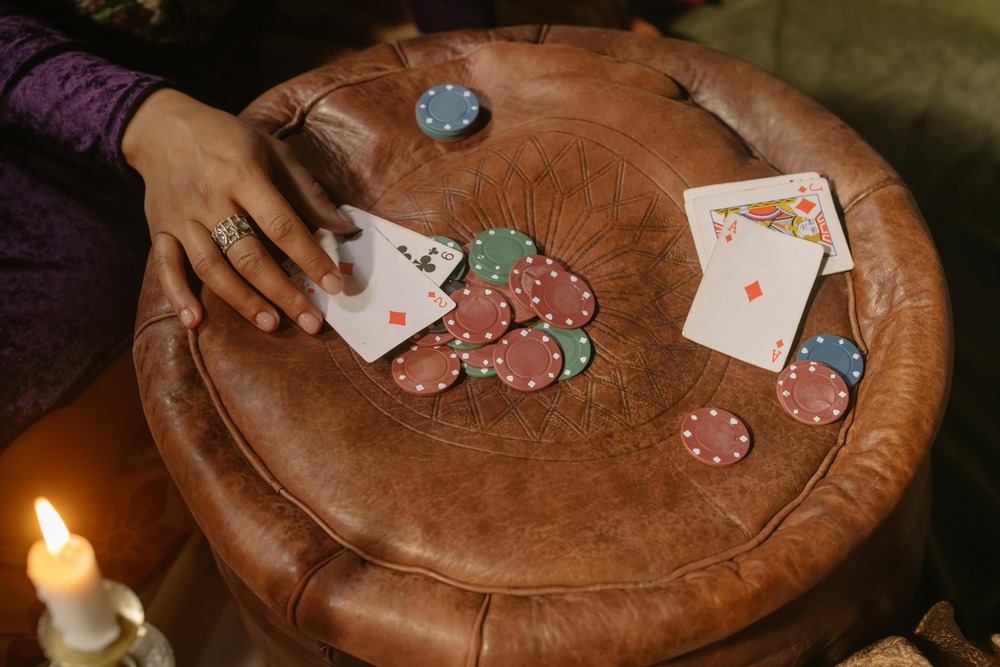Roulette is a game that involves a spinning wheel with numbered pockets and a ball that randomly lands on one of these pockets. The game is a blend of chance and strategy, where players place bets on where they think the ball will land. The outcome of each spin is independent of the previous spins, as the wheel has no memory of past results.
Probability plays a crucial role in roulette, as each bet has a specific probability of winning. For example, in European roulette, the probability of winning on a straight-up bet (betting on a single number) is 1/37, as there are 37 numbers on the wheel. Understanding the probabilities associated with each type of bet can help players make informed decisions when placing their bets.
Strategy in roulette involves choosing the right bets based on risk tolerance and potential payouts. Players can opt for safer bets with higher probabilities of winning, such as even-money bets (e.g., red/black, odd/even), or riskier bets with higher payouts but lower probabilities of winning, such as straight-up bets. Developing a strategy that balances risk and reward is key to maximizing chances of success in roulette.
Overall, the game of roulette offers a blend of mathematical principles, probabilities, and strategic thinking. By understanding these elements, players can approach the game with a level-headed approach that enhances their overall experience and potentially improves their chances of success.
The Fundamentals of Roulette Probability
When entering a casino, the spinning roulette wheel often captures the attention of visitors. Understanding the fundamentals of roulette probability is essential for comprehending the game’s mechanics.
Each spin of the wheel represents an independent event determined solely by chance. The calculation of the probability of the ball landing on a specific number or color involves straightforward mathematical formulas.
For instance, in European roulette with 37 pockets, the likelihood of hitting a single number stands at 1/37. This knowledge enables players to make strategic decisions when placing bets, although luck remains a significant factor.
Check out our article The Roulette Playbook to learn more.
Understanding the Role of House Edge
Understanding the house edge is fundamental in roulette as it elucidates how casinos secure profits over time. The house edge represents the inherent advantage held by casinos, guaranteeing their profitability.
In roulette, this advantage stems from the inclusion of the green 0 and 00 on the wheel, skewing the odds slightly in favor of the house. For instance, in American roulette featuring both 0 and 00, the house edge stands at 5.26%. This indicates that for every $100 wagered, the casino anticipates an average profit of $5.26.
Acquiring knowledge about the house edge empowers players to make informed betting choices and set realistic expectations while engaging in roulette gameplay.
Strategies for Maximizing Winning Potential
Implementing sound strategies can enhance your chances of success in roulette. One method involves starting with even money bets such as red or black, odd or even, or high or low numbers. While these bets offer higher probabilities of winning, they yield lower payouts.
Another strategy is the Martingale system, where you double your bet following each loss to recover previous losses and generate a profit. However, this approach carries a significant risk of depleting your bankroll rapidly.
An alternative is the Reverse Martingale, where you increase your bet after a win instead. It’s important to note that no strategy can guarantee a win, but strategic decision-making can help optimize your potential for success in the game.
Exploring Different Betting Systems
Exploring different betting systems in roulette can offer players various strategic approaches to the game. The Martingale system involves doubling bets after losses, aiming to recoup previous losses with a single win.
The Fibonacci sequence operates on a mathematical progression, guiding players on how to adjust their bets.
The Paroli system, also called the Reverse Martingale, entails increasing bets after wins to capitalize on winning streaks.
The D’Alembert system seeks to balance wins and losses by adjusting bets incrementally. Each system presents a distinct method of managing bets and potentially enhancing winning prospects.
Trying out different betting systems can introduce diversity and strategic depth to roulette gameplay, allowing players to determine the most suitable strategy for their preferences.
Practical Tips for Roulette Success
After familiarizing yourself with various betting systems in roulette, it’s advisable to consider practical tips to enhance your chances of success in the game. Setting limits is a fundamental aspect to manage your finances effectively. Establish a budget and adhere to it strictly to prevent chasing losses and maintain control over your expenditures.
Understanding the odds and payouts associated with different types of bets is essential for making well-informed decisions during gameplay.
Opting for European roulette instead of American roulette can be advantageous due to the lower house edge, potentially increasing your odds of winning in the long run. It’s crucial to acknowledge that roulette is primarily a game of chance, and there are no foolproof strategies that guarantee success. Therefore, it’s essential to approach the game with a realistic mindset and avoid falling for misleading claims of guaranteed wins.
Lastly, it’s essential to enjoy the game as a form of entertainment rather than solely focusing on financial gains. By incorporating these practical tips into your roulette strategy, you can enhance your overall gaming experience and potentially improve your outcomes at the roulette table.
Learn more in our article https://casino-x-officialniy-sait.com/2024/10/21/winning-at-roulette-techniques-for-consistent-success/
Conclusion
When playing roulette, it is important to consider the odds and house edge to make informed decisions. Understanding probability and employing strategic thinking can enhance your chances of success. Setting limits, exploring various betting systems, and maintaining a realistic approach are key aspects to improve your roulette experience. By following these guidelines, you can potentially enhance your enjoyment of the game and increase your chances of winning.

